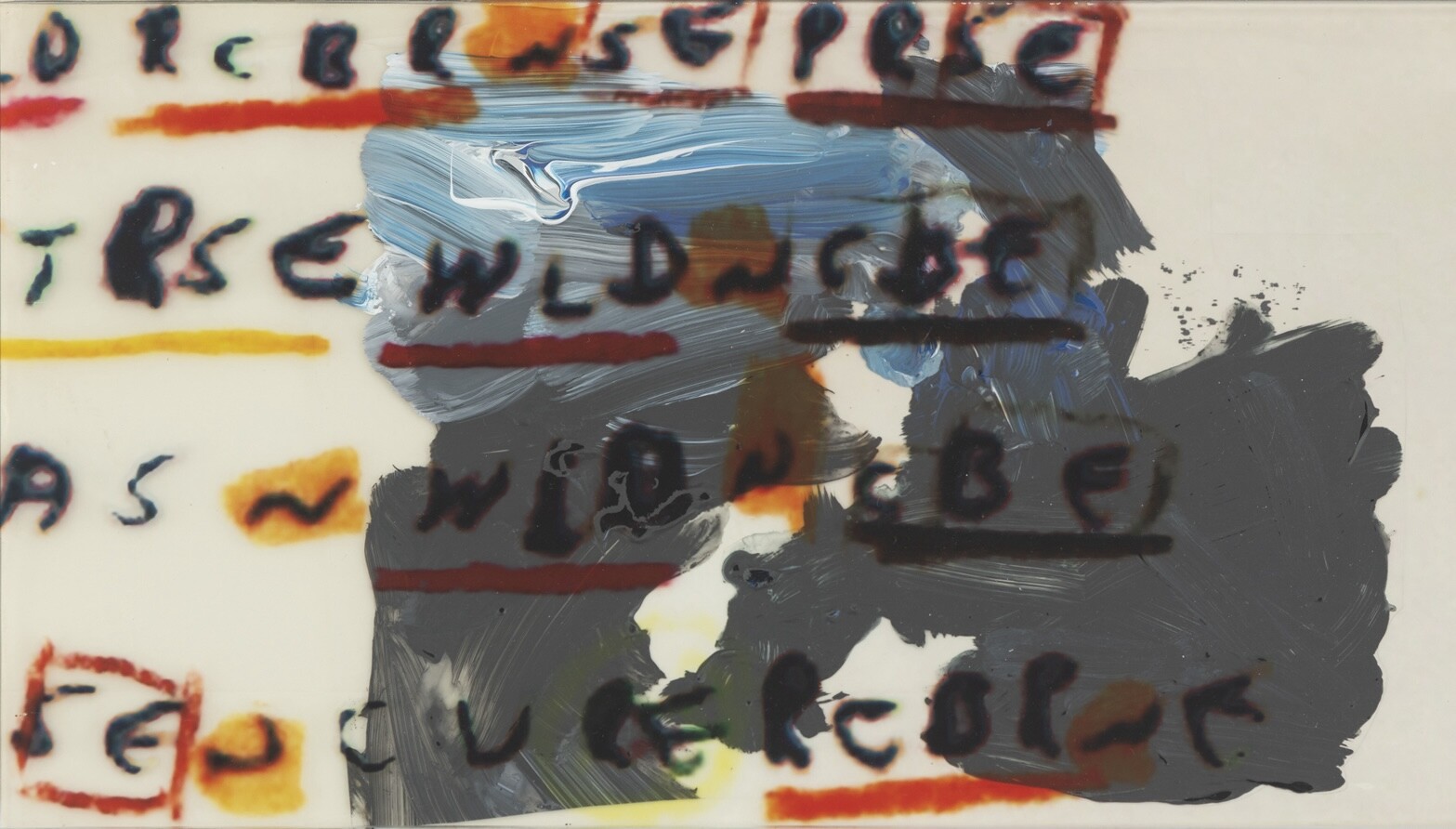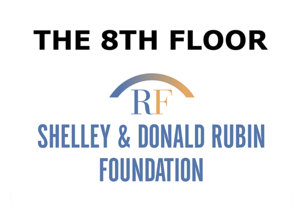September 19–December 7, 2024
The Shelley & Donald Rubin Foundation is pleased to present Scrawlspace, a new group exhibition curated by Emily Alesandrini and Lucia Olubunmi R. Momoh at The 8th Floor, opening on September 19 from 6–8pm and on view through December 7, 2024. The project brings together work by artists of the African diaspora who conceptually mine and aesthetically manipulate text, writing, and language. Artists include Sadie Barnette, Lukaza Branfman-Verissimo, Sonya Clark, Tony Cokes, Renee Gladman, Kameelah Janan Rasheed, Steffani Jemison, Glenn Ligon, Adam Pendleton, Jamilah Sabur, Gary Simmons, and Shinique Smith.
Scrawlspace explores the in/ability of language and writing to fully encapsulate Black experiences. Through the visual re/working, re/imagining, and de/construction of texts, Black artists examine historically charged relationships to the written word while revealing new possibilities for and beyond writing. Some render phrases and words illegible, glyphic, or coded to the point that letters and graphic gestures no longer constitute language but become images, demonstrating an opacity, complexity, and multiplicity of meanings beyond sanctioned readings and definitions. The act of annotating and obscuring words and documents often serves as an intervention into difficult histories, such as the threat and power of state documentation and unknowable silences and omissions within the archive. And yet, artists also demonstrate how language can be utilized in acts of refusal, sabotage, and liberation, serving as instruments in community and world-building, and to explore pleasure and identity.
The term “scrawlspace” appears in Fred Moten’s 2017 Black and Blur, where he credits the term to Hortense Spillers. However, Moten could not locate the word’s origin in Spillers’ published writings, citing instead poet and scholar Harryette Mullen who previously credited “scrawl space” to Spillers. Spillers herself has recently shared with the curators that she has no recollection of inventing “Scrawlspace/scrawl space.” While its source remains unresolved, given the long history of the appropriation, manipulation, and theft of Black women and queer folx’s labor and language, Moten and Mullen’s insistence on citing Spillers demonstrates a shared admiration for (and perhaps attachment to) the concept, amplifying its enchantment and use. Its movement through various texts reflects the beautifully queer and caring traditions of Black writing and research practices, while also speaking to the collective nature of the creation process and of giving meaning to words. In this way, Scrawlspace also draws attention to citation as Black liberation praxis rooted in notions of kinship, weaving together writing, research, and visual creative practices. The curators are honored to carry on the conversation with an exhibition that features work by visual artists who seek liberation in, through, and against language.
Associated programming to be announced soon (mailing list). To learn more about the artists and curators, please read the full press release here.
*Image description: Made of glass, acrylic, paper, and polyester film materials, a wide rectangular work has a beige background, with large light blue and dark gray paint marks consuming the center third of the frame. On top of the paint, messy letters are printed in gray with yellow and orange outlining and underlining. The center two of the four lines might be read as: “TRSE WLD N CDE / AS N WLD N CBE”



